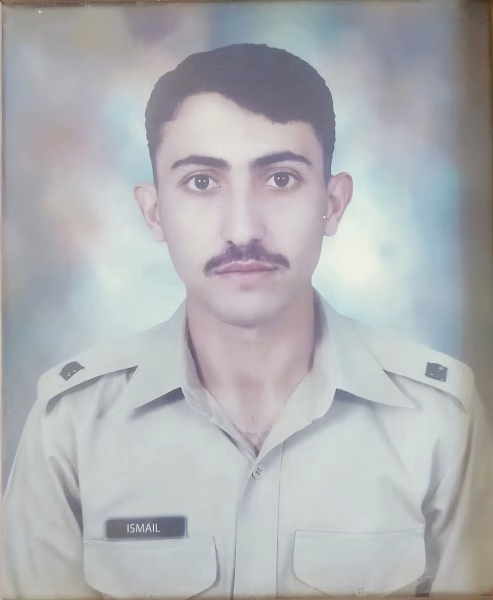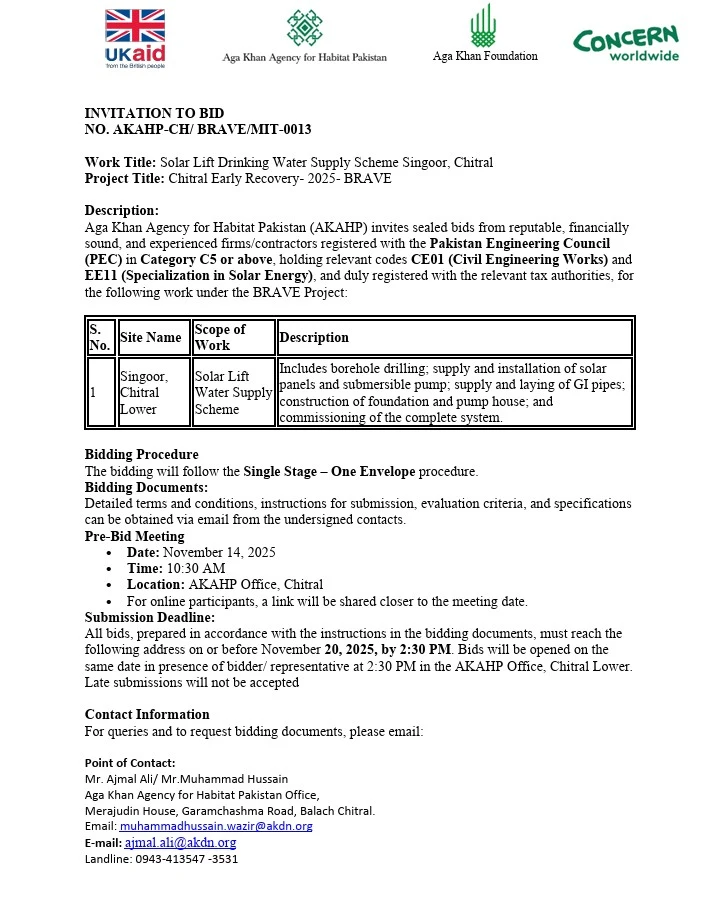Zulfiqar Ahmad
ISLAMABAD, July 4: The remote mountain village of Parwak came to a standstill on Friday as mourners gathered to bid farewell to one of its brightest sons – Major Syed Ismail Shah, 33 – a rising star in the Pakistan Army whose life was tragically cut short by a sudden illness after elite military training in New York.
Laid to rest with full military honours in his ancestral village of Parwak, Major Ismail’s funeral drew mourners from across the region. Soldiers stood at attention. Comrades wept. And the flag over his coffin fluttered gently in the mountain wind – a silent salute to a man whose life embodied duty, resolve and sacrifice.
He was the ninth martyr from the tiny 4,000-strong cluster of Parwak and Sonoghur – and the first commissioned officer from the area to die in uniform. That distinction has stirred fresh calls from local residents for urgent infrastructure development, including roads, schools, and clean water – not only for his native village Parwak but for the broader Chitral valley as well.
But Major Ismail’s story began not with politics but with quiet greatness. Born the only son of the late retired Subidar Syed Ibrahim Shah, Major Ismail was raised in a family steeped in service.
He received his early education at the prestigious Langlands School and College Chitral and later at Cadet College Razmak in North Waziristan, where he passed his FSc with flying colours.
He was offered a fully funded government scholarship to study medicine in Cuba but chose another path – the military – fulfilling his late father’s wish, who was still alive at the time. In 2004, he passed the Inter Services Selection Board (ISSB), beginning a career defined by courage and distinction.
According to his cousin Samiuddin, Principal of Government Higher Secondary School in Broz, Major Ismail’s service record reads like a soldier’s dream.
He served on some of the toughest frontlines – Bajaur, Kashmir, Quetta and most recently Pano Aqil, where he commanded an artillery division during recent skirmishes with India.
At the end of May, he was selected for an elite joint artillery exercise with US forces in New York – one of only eight majors and two colonels picked from the entire Pakistan Army. It was a rare and prestigious honour that made his native district Chitral beam with pride.
But after completing the training, he fell ill. Doctors diagnosed the condition as a complication related to an ulcer. Despite medical intervention, Major Ismail died – far from home, but never far from the hearts of those who loved him.
His coffin was accompanied back to Parwak by fellow officers of the Pakistan Army – Lt Col Sultan Ali, Lt Col Akhtar Azam, Major Anwar and others – who traveled to stand by their fallen comrade all the way from Rawalpindi. A gesture of brotherhood. A final act of loyalty.
“He was like a child in our hands,” said his cousin, Deputy Commissioner Kohat Abdul Akram, who watched him grow. “But he was born to be a soldier – a different breed entirely. A true gentleman.” He paused. “His passing has left a hole in our hearts that nothing can fill.”
He is survived by a grieving mother, two sisters, his widow, a three-and-a-half-year-old son, and a nine-year-old daughter currently in class 2. To them, he was more than a hero. He was their world.
Residents of Parwak and surrounding villages are now demanding the Army’s top brass – especially Chief of Army Staff and Field Marshal Syed Asim Munir – honour Major Ismail’s sacrifice by addressing the chronic neglect of the backward Chitral valley and his native village Parwak.
With only two middle schools and no high school for girls in adjacent villages like Miragram No. 1 and Sonoghur, locals say the time for change is now.
For the people of Chitral, Major Ismail’s journey from a remote valley to international command is nothing short of legendary. Making it to the Army from a place like Parwak is rare. Excelling on the world stage is almost unheard of.
But then again, Major Syed Ismail Shah Shaheed was never ordinary. To his soldiers, he was a leader. To his family, a son of pride. To his homeland, a guardian returned home. He died young but lived with a purpose, dignity, and valour that legends are made of.


